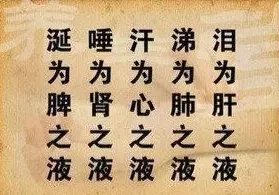According to Chinese medicine, the lung corresponds to autumn. The lung is a delicate organ that is connected to the outside world through the nasal cavity and is susceptible to invasion by external evil. The principle of lung care in Chinese medicine is to distinguish the evidence and type, and different types of evidence have different ways of care.
How to take care of the lungs through the evidence type?
1, Heavy lung fire
When breathing, one feels a distinct burning sensation in the nasal cavity, pain in the throat, yellowing of urine, dry stools or difficulty in defecation, etc. According to Chinese medicine, exuberant lung fire is a heat-related disease, and the principle of its treatment is to clear the fire and detoxify the heat. At the same time, we should adjust the diet structure, stay away from fatty, sweet, greasy, spicy and stimulating food; do a light diet, refuse to overeat, and stay away from indigestible food to avoid accumulation of food and cause fire. We recommend cooling foods, such as cucumber, pear, silver fungus and cabbage. You can also use Chinese herbal medicines such as salvia, yucca and dendrobium under the guidance of Chinese medicine practitioners.
2, Lung Yin deficiency type
Lung Yin deficiency is also a heat-related disease, characterized by dry cough, little or no phlegm, accompanied by body wasting, night sweats and hot flashes, and heat in the heart of the hands and feet. However, the principle of management is different from that of lung fire. Those with lung yin deficiency should focus on nourishing yin, and can drink yu zhu tea or dendrobium tea; refuse to eat spicy and heat-aiding foods, such as mutton, cinnamon and pepper, leek and onion, and pepper, etc., and should eat less lychee and durian, etc., to avoid hurting yin.
3, Lung Qi deficiency type
Lung Qi deficiency is characterized by frequent coughing, shortness of breath, shortness of breath after a few minutes of exercise, easy sweating, catching a cold when the weather changes, general weakness and fear of wind, and reluctance to exercise. From the perspective of traditional Chinese medicine, the spleen can biochemically produce qi and blood, and a weakened spleen and stomach can aggravate the symptoms of qi deficiency, so in addition to protecting the kidneys, we also need to focus on strengthening the function of the spleen and stomach. Stay away from foods that are too greasy, cold, indigestible, spicy, stimulating and qi-depleting, such as glutinous rice, garlic and hawthorn, and pepper; recommend eating warm foods that strengthen the spleen and benefit qi, such as yams, carrots and pumpkins, and rice. Persistent massage of Guan Yuan and Qi Hai points can reduce the symptoms of Qi deficiency; you can also take Yu Ping Feng San herbal tea, which is made from herbs such as Fang Feng, Bai Zhu and Huang Qi, under the guidance of a Chinese medicine practitioner.
Warm Tips
To protect your lungs, you need to start with the small details of your life, to achieve a regular diet, balanced and comprehensive nutrition, and eat more fresh vegetables and low-sugar fruits. Get up and go to bed on time, do not overwork or rest; have 4~5 times a week of moderate intensity aerobic exercise of 30 minutes or more, which can improve heart and lung function; stay away from highly polluted environment, refuse to smoke and exposure to second-hand smoke.
